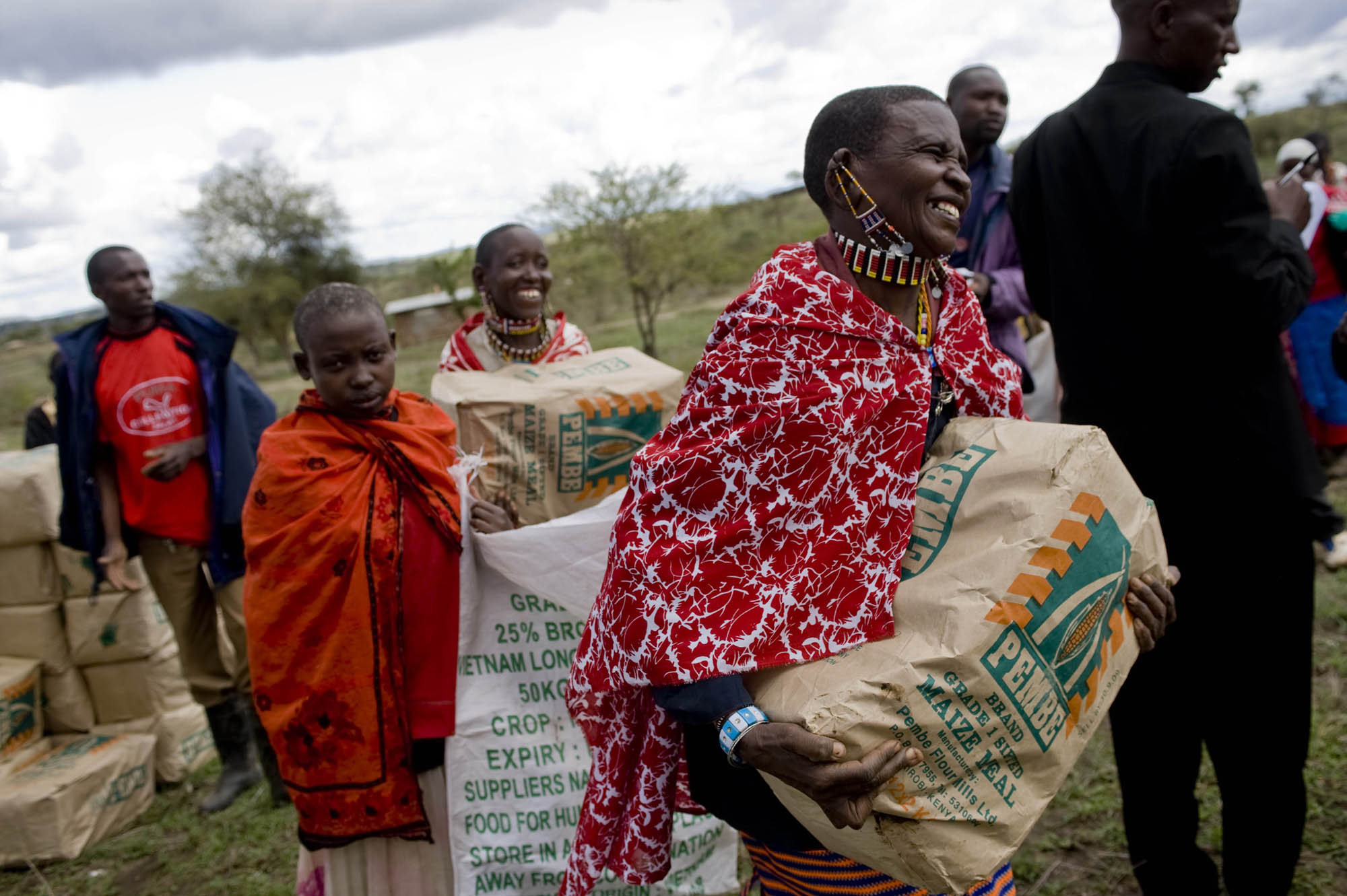
ILMAMEN, Kenya (BP)–The rains come too late for the crops. Cows, selling for about $5, have no meat on their bones. The drought’s damage will be fatal for many.
From the Maasai Mara wildlife reserve in Kenya to Mount Kilimanjaro in Tanzania — about 11,700 square miles — everyone is hungry.
“The problem is that there is no grass,” Bob Calvert says. “There is not enough water, not enough rain. For the past month, as I was waiting on relief supplies to come, I have been cutting grass around Nairobi to take to pastors for their animals to eat.”
Calvert, an International Mission Board missionary, lives outside Kenya’s capital, Nairobi. He partnered with Baptist Global Response, an international relief and development organization, to deliver nearly $500,000 worth of flour and cooking fat to women between May and July.
The money, provided by Southern Baptists through their World Hunger Fund, was enough to feed 180,000 people for one month — at a cost of $2.70 each.
“Pastors started coming to me in November of last year to tell me that they needed food,” Calvert recounts. “I told them to start collecting names of those who needed the food immediately — women, orphans, old men, those with no other income.”
Pastors in 238 churches collected the names of 29,280 women whose families need food. The reason for identifying the need through women is that some men have as many as four wives. This way each woman can feed her children.
Baptist Global Response worked with Calvert to develop a strategy for providing staple foods to people suffering in Kenya’s Rift Valley area.
“Cyclical hunger in Africa is a fact of life,” says Mark Hatfield who with his wife Susan directs Baptist Global Response work in Sub-Saharan Africa. “Environmental changes, in association with land use methods that have degraded the environment, along with a series of very poor rainy seasons, brought about this need for assistance.”
Each woman received 12 five-pound bags of flour and one tub of cooking fat. While the distribution will stave off hunger for a month, it will be six months before families will have an opportunity to plant new crops.
Pastor Jon, located near the Maasai Mara, tells Calvert there has been no rain in his area. “We are eating dust,” Jon says.
When word spread that relief supplies had arrived, about 2,000 people, mostly women, hiked more than an hour to assemble at one of the distribution points, Ilmamen Baptist Church, located in a village about two hours south of Nairobi.
Agnes Mongela has eight children. For the past four years, she has not had more than one meal every other day.
After waiting in a neighboring schoolyard for seven hours, Agnes hears her number called and, smiling broadly, crosses over to the church to get her food.
The women tie the 60-plus pounds of food onto their backs and prepare for the long trek home. They center the rope, made from dried cowhide or sisal, on top of their heads and balance the food on their lower backs.
They chatter happily about the food they received. It was more than they expected.
Not everyone will get food today, however. At each church, only slightly more than a thousand women are on the list to receive food. The other thousand will beg for a small share.
During a two-month period, 10 people have died because food is so scarce. One family lost a father, mother and child when a boulder fell on them while they were hand-cutting grass for their animals on a steep mountainside.
The price of flour has risen greatly in the past year. The locals cannot afford it. The many aid organizations located in Kenya are out of money to feed the millions of people who still need food.
Some of the people in need, however, are being helped — because Southern Baptists cared.
–30–
Sydney A. James is an international correspondent for Baptist Global Response, which is located on the Internet at gobgr.org.














